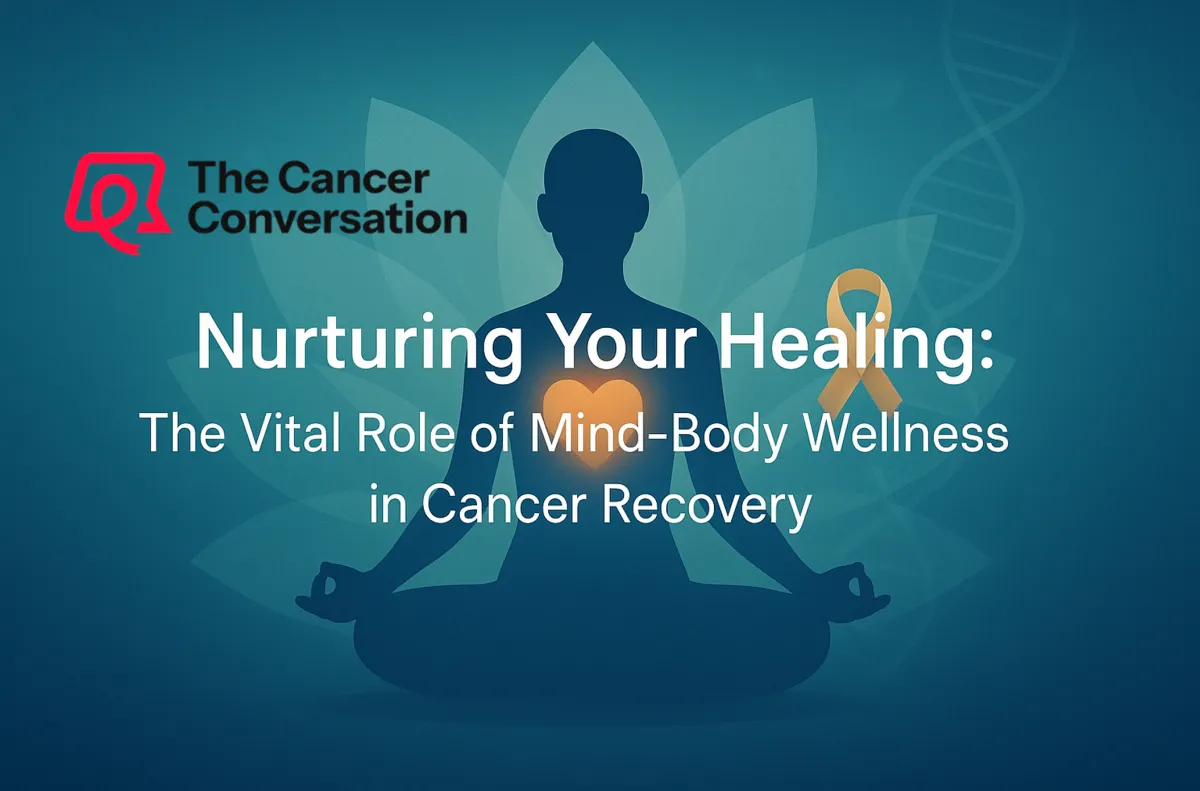
Nurturing Your Healing: The Vital Role of Mind-Body Wellness in Cancer Recovery
Cancer can feel like an uphill battle, but you’re not alone. Embracing mind-body wellness can weave a powerful thread of healing through your cancer recovery, offering strength and comfort when you need it most. Imagine nurturing your emotional resilience, supporting your mental health, and complementing your medical treatments with holistic healing practices. Dive into how these integrative approaches can empower you to take proactive steps in your journey. Explore our Mind-Body Cancer Therapy and connect with a community that understands and supports your healing. http://www.ifm.org/articles/mind-body-therapies-for-cancer-survivors
The Power of Mind-Body Wellness

Mind-body wellness plays a crucial role in supporting individuals through cancer recovery. By focusing on the interconnectedness of the mind and body, patients can find holistic healing pathways that enhance their emotional and physical well-being. This approach emphasizes the importance of nurturing both mental and physical health to build resilience during challenging times.
Emotional Resilience in Cancer Recovery
Emotional resilience is the ability to adapt and thrive despite adversity. For cancer patients, building emotional resilience is essential. It involves developing coping mechanisms to handle stress, fear, and uncertainty associated with a cancer diagnosis. Techniques such as mindfulness meditation and cognitive-behavioral strategies can fortify emotional strength.
Practices like journaling and art therapy can also offer emotional outlets, encouraging patients to express their thoughts and feelings creatively. This expression helps in processing emotions and reducing anxiety.
Additionally, engaging in regular physical activity, such as yoga or tai chi, can contribute to emotional resilience. Physical movement not only boosts mood but also enhances overall energy levels.
Holistic Healing Practices for Support
Holistic healing involves treating the whole person, not just the symptoms of cancer. This approach integrates various therapies to support the body, mind, and spirit. Techniques such as acupuncture and massage therapy can offer relief from treatment side effects and improve overall well-being.
Nutrition also plays a pivotal role in holistic healing. Consuming a balanced diet rich in antioxidants and anti-inflammatory foods supports immune function and optimizes health.
Furthermore, aromatherapy and sound therapy can create a calming environment, reducing stress and promoting relaxation. These practices empower patients to take an active role in their healing process.
Integrative Cancer Care Strategies

Integrative cancer care combines conventional treatments with complementary therapies to provide a comprehensive approach to cancer management. This strategy focuses on enhancing quality of life and improving treatment outcomes through personalized care plans.
Stress Management Techniques
Effective stress management is vital for cancer patients to maintain mental and physical health. Techniques such as deep breathing exercises and guided imagery can be powerful tools for relaxation.
Deep Breathing: Practicing deep breathing exercises can activate the body's relaxation response, reducing stress and anxiety levels.
Guided Imagery: Visualizing peaceful scenes or positive outcomes can help patients feel more in control and reduce stress.
Progressive Muscle Relaxation: This involves tensing and relaxing muscle groups, which can alleviate tension and promote relaxation.
These stress management techniques can be integrated into daily routines to provide ongoing support.
Complementing Conventional Treatments
Complementary therapies can enhance traditional cancer treatments by addressing physical, emotional, and spiritual needs. For example, acupuncture can alleviate chemotherapy side effects such as nausea and fatigue.
A balanced diet can further support conventional treatments by providing essential nutrients that aid in recovery and boost immune function. Regular physical activity, tailored to individual capabilities, can enhance energy levels and improve mood.
Incorporating mind-body practices like meditation and yoga can also support mental health, providing patients with resilience and a sense of empowerment.
Building a Supportive Community

A supportive community can offer invaluable encouragement and understanding for those undergoing cancer treatment. Connecting with others who share similar experiences can foster a sense of belonging and provide emotional support.
Connecting with Like-minded Individuals
Forming connections with others who understand the cancer journey can offer comfort and solidarity. Support groups, whether in person or online, provide a platform for sharing experiences and exchanging advice.
Online Forums: These platforms allow individuals to connect from the comfort of their homes, sharing stories and support.
Local Support Groups: Meeting in person can create strong bonds and provide a safe space for sharing emotions.
Such connections can alleviate feelings of isolation, providing a network of support that empowers individuals in their healing journey.
Sharing Stories and Testimonials 🌟
Sharing personal stories and testimonials can inspire hope and resilience. Real-life experiences offer insights and encouragement to others facing similar challenges.
Personal Stories: Hearing about others' journeys can instill hope and motivate patients to remain positive.
Testimonials: Personal accounts of overcoming obstacles can provide practical tips and boost morale.
These narratives remind cancer patients that they are not alone and that others have walked similar paths, providing strength and inspiration for their own recovery. 🌟
Incorporating mind-body wellness and joining a supportive community can significantly enhance the cancer recovery process. By exploring integrative care strategies and connecting with others, individuals can find empowerment and hope in their healing journey.







